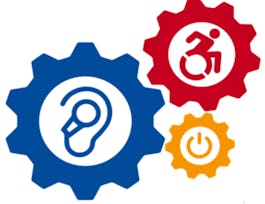What we eat and how we produce that food have significant effects on human health and the sustainability of our planet. But what is a ‘sustainable’ diet? A sustainable diet, as defined by the FAO, promotes health and well-being and provides food security for the present population while sustaining human and natural resources for future generations. This short course looks at the urgent need to address the sustainability of our food systems, including better understanding the complex relationship between diet and climate change. We’ll explore current research on dietary shifts needed in high, middle, and low-income countries to achieve both sustainability and food security goals and discuss evidence-based strategies to promote sustainable diets.


Public Health Perspectives on Sustainable Diets
Taught in English
Some content may not be translated
8,112 already enrolled
(182 reviews)
Recommended experience
What you'll learn
What is food system sustainability and resilience?
What is a "sustainable" diet - and why does it matter?
How can we make our food system more sustainable?
Skills you'll gain
Details to know

Add to your LinkedIn profile
4 quizzes
See how employees at top companies are mastering in-demand skills


Earn a career certificate
Add this credential to your LinkedIn profile, resume, or CV
Share it on social media and in your performance review

There are 3 modules in this course
Our food system is much more than a supply chain that brings food from the farm to your plate. What is a food system? How can thinking about food as a system help us understand and address the messy overlapping issues of diet, food production, planetary health and climate change? What does ‘sustainability’ mean, in the context of food systems, and is it the same as resilience? How has COVID-19 pandemic amplified the many challenges faced by vulnerable workers and consumers? Roni Neff addresses these questions – and many more – in this opening series of lectures.
What's included
5 videos3 readings1 quiz1 discussion prompt
What defines a sustainable diet? Why do sustainable diets matter? And what might sustainable diets look like in the US and around the world? The answers may surprise you. In this engaging and thought-provoking set of lectures, Brent Kim will address these questions and explain recent research that compares the impact of different diets on greenhouse gas emissions and water use across 140 countries.
What's included
4 videos1 reading1 quiz1 discussion prompt
In our final week, we will explore sustainable diets through the lens of a public health practitioner and registered dietitian. In this series of lectures, we’ll considering nutritional needs and why it is difficult to define a ‘sustainable’ diet for everyone. Then we’ll share evidence-based strategies for communicating about sustainable diets and how different sectors can play a role in advancing change. We hope you have enjoyed this short course! Please be sure to complete the post-course survey and leave us feedback on the Coursera platform.
What's included
4 videos2 readings2 quizzes1 discussion prompt
Instructors

Offered by
Recommended if you're interested in Public Health

University of Michigan

University of Pittsburgh

University of Michigan

Columbia University
Why people choose Coursera for their career




Learner reviews
Showing 3 of 182
182 reviews
- 5 stars
82.96%
- 4 stars
15.38%
- 3 stars
0.54%
- 2 stars
0.54%
- 1 star
0.54%
New to Public Health? Start here.

Open new doors with Coursera Plus
Unlimited access to 7,000+ world-class courses, hands-on projects, and job-ready certificate programs - all included in your subscription
Advance your career with an online degree
Earn a degree from world-class universities - 100% online
Join over 3,400 global companies that choose Coursera for Business
Upskill your employees to excel in the digital economy
Frequently asked questions
Access to lectures and assignments depends on your type of enrollment. If you take a course in audit mode, you will be able to see most course materials for free. To access graded assignments and to earn a Certificate, you will need to purchase the Certificate experience, during or after your audit. If you don't see the audit option:
The course may not offer an audit option. You can try a Free Trial instead, or apply for Financial Aid.
The course may offer 'Full Course, No Certificate' instead. This option lets you see all course materials, submit required assessments, and get a final grade. This also means that you will not be able to purchase a Certificate experience.
When you purchase a Certificate you get access to all course materials, including graded assignments. Upon completing the course, your electronic Certificate will be added to your Accomplishments page - from there, you can print your Certificate or add it to your LinkedIn profile. If you only want to read and view the course content, you can audit the course for free.
You will be eligible for a full refund until two weeks after your payment date, or (for courses that have just launched) until two weeks after the first session of the course begins, whichever is later. You cannot receive a refund once you’ve earned a Course Certificate, even if you complete the course within the two-week refund period. See our full refund policy.





